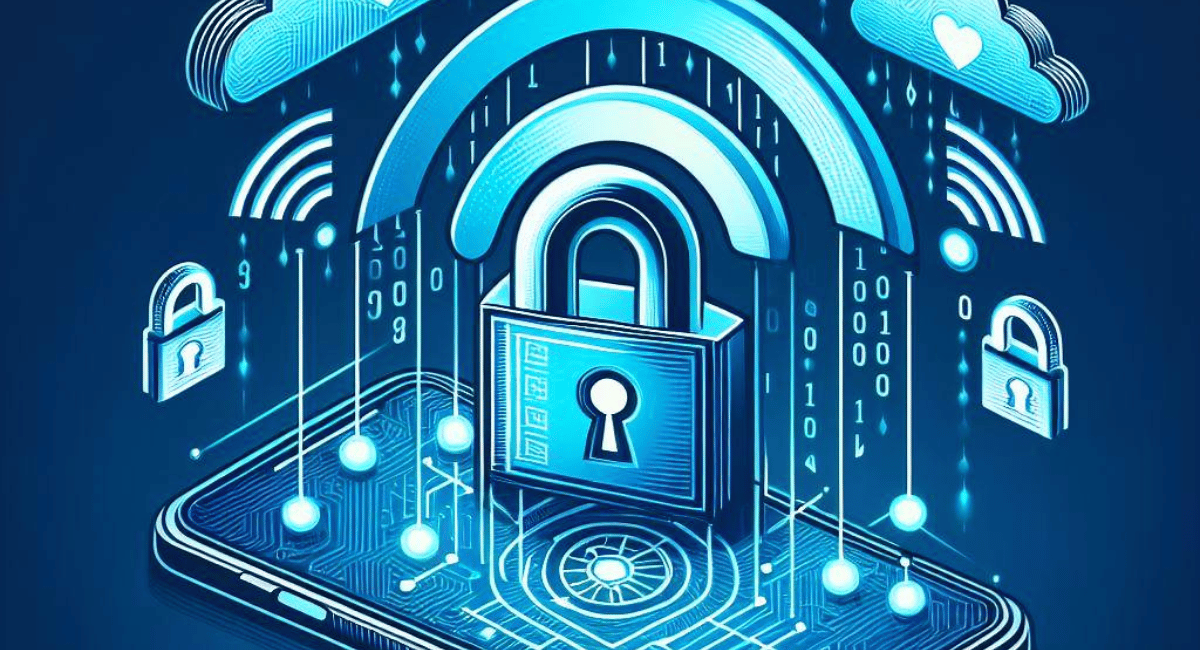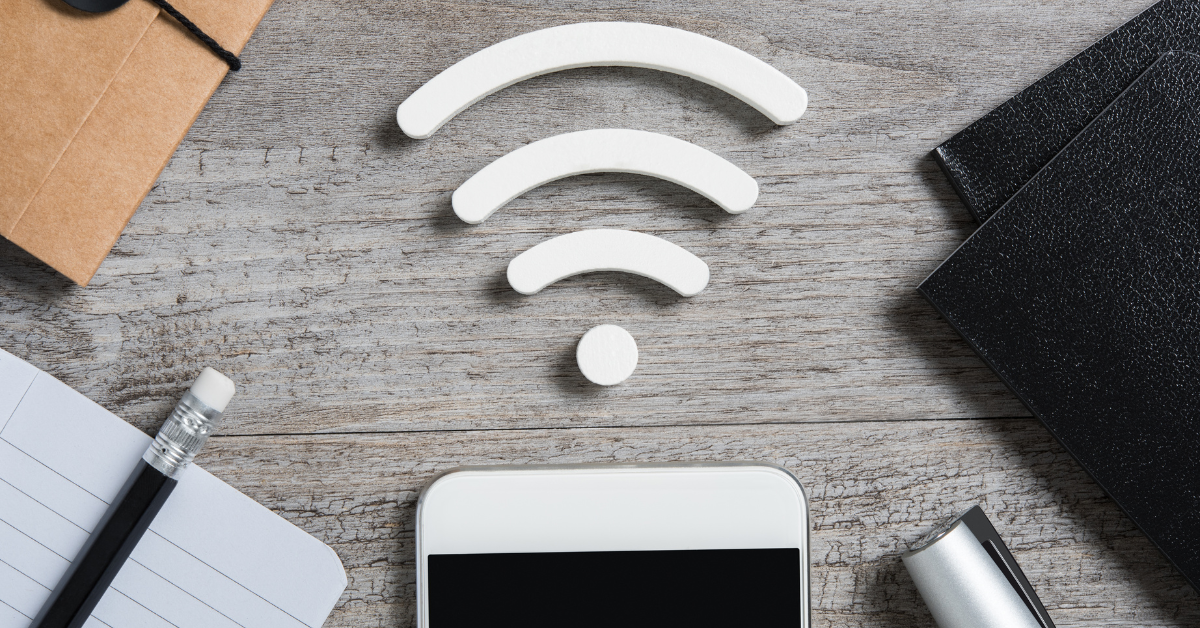Cellular data is generally more secure compared to open Wi-Fi networks. Cellular networks utilize encryption, authentication, and infrastructure security measures to protect data transmission. However, no system is entirely immune to security risks, and individuals should follow best practices to enhance cellular data security.
As our reliance on mobile devices continues to grow, ensuring the security of our data has become a top priority. I will explore the security of cellular data networks and address the question: How secure is cellular data?
Cellular data networks provide wireless internet connectivity through mobile service providers, allowing users to access online services and transmit data. The security of cellular data lies in its ability to protect sensitive information during transmission and prevent unauthorized access. Encryption and authentication protocols are employed to ensure that only authorized parties can access the data being transmitted.
How Secure Is Cellular Data?

Cellular data has become an integral part of our digital lives, allowing us to stay connected and access the internet from almost anywhere. However, when it comes to data security, many individuals wonder just how secure cellular data really is.
Understanding Cellular Data Security
Cellular data networks, also known as mobile data networks, provide internet connectivity through cellular towers operated by mobile service providers. These networks utilize advanced encryption protocols to protect data transmission and ensure privacy. Here are some key factors that contribute to the security of cellular data:
- Encryption: Cellular data networks employ strong encryption algorithms to safeguard the data being transmitted over the network. This encryption makes it extremely difficult for hackers to intercept and decipher the data, providing a secure channel for communication.
- Authentication: Cellular networks require user authentication, ensuring that only authorized devices can access the network. This authentication process adds an extra layer of security and helps prevent unauthorized access to cellular data services.
- Infrastructure Security: Mobile service providers invest heavily in securing their network infrastructure, including cellular towers, data centers, and backend systems. These measures protect against physical and cyber threats, making it challenging for malicious actors to compromise the network.
Why Cellular Networks are More Secure than Wi-Fi?
Cellular networks offer certain inherent security advantages over Wi-Fi networks, making them a more secure option for data transmission. Let’s explore some key reasons why cellular networks are considered more secure:
1. Encryption and Authentication: Cellular networks utilize encryption and authentication protocols to protect data during transmission. When you connect to a cellular network, your device authenticates itself with the network provider, establishing a secure connection. The data exchanged between your device and the network is encrypted, making it difficult for unauthorized parties to intercept and decipher the information.
2. Dedicated Infrastructure: Cellular networks have dedicated infrastructure managed by network providers. These providers invest in robust security measures, including firewalls, intrusion detection systems, and other protective mechanisms. The controlled nature of cellular networks reduces the risk of unauthorized access and enhances overall security.
3. Limited Range and Physical Security: Cellular signals have a limited range, typically reaching up to a few miles from the nearest cell tower. This limited range reduces the chances of unauthorized individuals intercepting the signal from a distance. Moreover, cell towers and network equipment are physically secured in controlled environments, making it more difficult for attackers to gain physical access and compromise the network.
4. Authentication at Multiple Levels: Cellular networks employ multiple levels of authentication to ensure secure connections. Not only does your device authenticate with the network, but the network also authenticates itself to your device. This mutual authentication adds an extra layer of security, ensuring that your device is connecting to a legitimate and trusted cellular network.
5. Network Segmentation: Cellular networks are segmented, meaning that different users are assigned different IP addresses and are isolated from each other. This segregation reduces the risk of unauthorized access to other devices on the network. Each user operates within their designated virtual space, enhancing data privacy and security.
6. Regulatory Compliance: Cellular networks are subject to strict regulatory requirements imposed by government authorities. These regulations mandate network providers to implement security measures and protect user data privacy. Compliance with these regulations ensures that cellular networks adhere to industry standards and best practices for security.
While cellular networks offer enhanced security, it’s important to note that no network is entirely immune to vulnerabilities. Users should still exercise caution and follow best practices, such as using strong passwords, keeping devices updated, and being mindful of the applications and websites they access.
The Difference: Cellular Networks vs. Wi-Fi Networks in Terms of Security

When it comes to data security, cellular networks and Wi-Fi networks have distinct characteristics and varying levels of vulnerability. Let’s explore the key differences between these two types of networks:
1. Encryption Standards:
- Cellular Networks: Cellular networks employ encryption standards such as GSM (Global System for Mobile Communications) or CDMA (Code Division Multiple Access), which provide strong encryption algorithms to protect data during transmission.
- Wi-Fi Networks: Wi-Fi networks use encryption protocols like WEP (Wired Equivalent Privacy), WPA (Wi-Fi Protected Access), or WPA2 (Wi-Fi Protected Access 2) to secure data. However, these protocols have faced vulnerabilities in the past, and older versions like WEP are no longer considered secure.
2. Infrastructure and Coverage:
- Cellular Networks: Cellular networks have extensive infrastructure consisting of cell towers and base stations that provide coverage over wide geographical areas. This infrastructure is managed by network providers, who implement security measures to protect the network and user data.
- Wi-Fi Networks: Wi-Fi networks are typically localized and limited to specific areas, such as homes, offices, or public hotspots. The coverage range of a Wi-Fi network is determined by the signal strength of the router, which means it may not provide the same widespread coverage as cellular networks.
3. Authentication Mechanisms:
- Cellular Networks: Cellular networks employ various authentication mechanisms, including SIM cards, unique device identifiers, and mutual authentication between the device and the network. These mechanisms help ensure that both the network and the user’s device are genuine and trusted.
- Wi-Fi Networks: Wi-Fi networks generally use passwords or other authentication methods to grant access to the network. However, the level of authentication and the strength of the password may vary, and weaker authentication can increase the risk of unauthorized access.
4. Network Segmentation and Isolation:
- Cellular Networks: Cellular networks typically assign different IP addresses to individual devices and isolate them from one another. This network segmentation adds an extra layer of security, as it restricts unauthorized access and helps protect user data from potential breaches.
- Wi-Fi Networks: Wi-Fi networks can be more vulnerable to attacks targeting multiple devices connected to the same network. If one device on a Wi-Fi network is compromised, it may create opportunities for attackers to gain access to other connected devices.
5. Regulatory Compliance:
- Cellular Networks: Cellular networks are subject to strict regulatory compliance requirements enforced by government bodies. Network providers must adhere to these regulations, which include implementing security measures to protect user privacy and data.
- Wi-Fi Networks: Wi-Fi networks, especially those in public spaces or provided by third-party entities, may not be subject to the same level of regulatory scrutiny. This can result in varying security standards and potentially weaker protection for user data.
While cellular networks generally offer stronger security features due to encryption, dedicated infrastructure, robust authentication, network segmentation, and regulatory compliance, it’s important to note that both types of networks can be vulnerable to certain types of attacks. Users should remain vigilant, follow security best practices, and exercise caution when accessing sensitive information over any network.
In conclusion, cellular networks provide stronger inherent security features compared to Wi-Fi networks. However, it’s essential to implement additional security measures, such as using secure websites (HTTPS), regularly updating devices and applications, and practicing good password hygiene, to ensure the highest level of data protection regardless of the network type.
Additional Considerations and Best Practices

While cellular data networks generally offer robust security measures, it is important to note that no system is entirely immune to security risks. Here are some additional considerations and best practices to enhance the security of your cellular data:
- Keep Devices Updated: Regularly update your mobile devices, including smartphones, tablets, and modems, with the latest software and security patches. These updates often include important security fixes that help protect against known vulnerabilities.
- Use Secure Connections: When accessing sensitive information or conducting online transactions, opt for websites that use HTTPS encryption. This ensures that the data transmitted between your device and the website is encrypted, adding an extra layer of security.
- Beware of Phishing Attempts: Be cautious of suspicious emails, messages, or links that could lead to phishing attacks. Phishing attempts aim to trick users into revealing personal information or login credentials. Avoid clicking on unfamiliar links or providing sensitive information unless you can verify the source’s authenticity.
- Utilize Virtual Private Networks (VPNs): Consider using a reputable VPN service to encrypt your cellular data traffic. VPNs create a secure tunnel between your device and the internet, protecting your data from potential eavesdropping or unauthorized access.
Key Takeaways:
- Cellular data networks employ strong encryption and authentication protocols, contributing to their security.
- Wi-Fi networks, especially unsecured ones, can be more vulnerable to security breaches.
- Cellular data networks generally have broader coverage, making them potentially attractive targets for hackers.
- Cellular networks provide a level of trust as they are operated by mobile service providers.
- Keeping devices updated, using secure connections, and practicing caution against phishing attempts are essential for enhancing cellular data security.
- Consider using reputable VPN services to encrypt cellular data traffic and add an extra layer of security
FAQs:
Q1: Are cellular data networks more secure than Wi-Fi networks?
A1: In general, cellular data networks offer higher security compared to Wi-Fi networks. Cellular networks employ encryption, authentication, and robust infrastructure security measures, making them more difficult for hackers to exploit.
Q2: Can cellular data be hacked?
A2: While no system is entirely hack-proof, cellular data networks have multiple security layers in place to protect against hacking attempts. Strong encryption, user authentication, and infrastructure security make cellular data more secure than open Wi-Fi networks.
Q3: How does cellular data security compare to Wi-Fi security?
A3: Cellular data networks generally provide better security than Wi-Fi networks due to the use of advanced encryption protocols, user authentication, and the involvement of mobile service providers in maintaining network security. Wi-Fi networks, especially open or unsecured ones, can be more vulnerable to security breaches.
Q4: What can I do to enhance cellular data security?
A4: To enhance cellular data security, keep your devices updated with the latest software and security patches, use secure connections with HTTPS encryption, be cautious of phishing attempts, and consider using reputable virtual private network (VPN) services for an additional layer of encryption and protection.
Q5: Can cellular data networks be trusted?
A5: Cellular data networks operated by reputable mobile service providers can generally be trusted. These providers invest in securing their infrastructure and have a vested interest in maintaining the privacy and security of their users’ data. However, individual users should also take steps to ensure their own data security by following best practices and exercising caution.
Conclusion
In conclusion, cellular data networks offer a higher level of security compared to any connected networks. The implementation of strong encryption, user authentication, and robust infrastructure security contribute to the overall security of cellular data transmission. However, it is crucial for individuals to remain vigilant and adopt best practices to further enhance their data security. By staying informed, keeping devices updated, and utilizing secure connections, users can maximize the security of their cellular data usage and protect their sensitive information.
